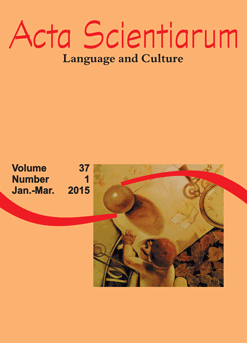<b>Performance, humor, discourse of salvation and eternal return in the novel <i>Miss Lonelyhearts
Resumen
This article aims at analyzing the relationship between fiction and salvific discourse in the novel Miss Lonelyhearts (1933), by Nathanael West, understanding this problematic narrative as a liberating performance of the humor classified as black, from which dogmatic contents are dissociated, with a shift beyond the psychological dimension and religious representations that contents take into account. To do so, we carried out our reading by making use of the myth of Dionysus that allows us to articulate the vertiginous logics that takes place in West’s text, leading it to the nonsense that contaminates the religious discourse and deposes it from the sovereign power in this fictional world. Furthermore, our study is grounded on Deleuze’s recreation of Nietzsche’s eternal return. We also resort to the philosophy of religion to understand Nietzsche’s criticism of Christianity and its relation to the myth of Dionysus and eternal return in the analyzed work. The analysis made of such novel points to the insertion of irony and humor in the novel as a constant literary element that causes discursive heterogeneity, pointing the ambivalences and inconsistencies of Christianity conveyed by media in the discourse of messianic metanarrative.Descargas
DECLARAÇÃO DE ORIGINALIDADE E DIREITOS AUTORAIS
Declaro que o presente artigo é original, não tendo sido submetido à publicação em qualquer outro periódico nacional ou internacional, quer seja em parte ou em sua totalidade.
Os direitos autorais pertencem exclusivamente aos autores. Os direitos de licenciamento utilizados pelo periódico é a licença Creative Commons Attribution 4.0 (CC BY 4.0): são permitidos o acompartilhamento (cópia e distribuição do material em qualqer meio ou formato) e adaptação (remix, transformação e criação de material a partir do conteúdo assim licenciado para quaisquer fins, inclusive comerciais.
Recomenda-se a leitura desse link para maiores informações sobre o tema: fornecimento de créditos e referências de forma correta, entre outros detalhes cruciais para uso adequado do material licenciado.




















6.png)









